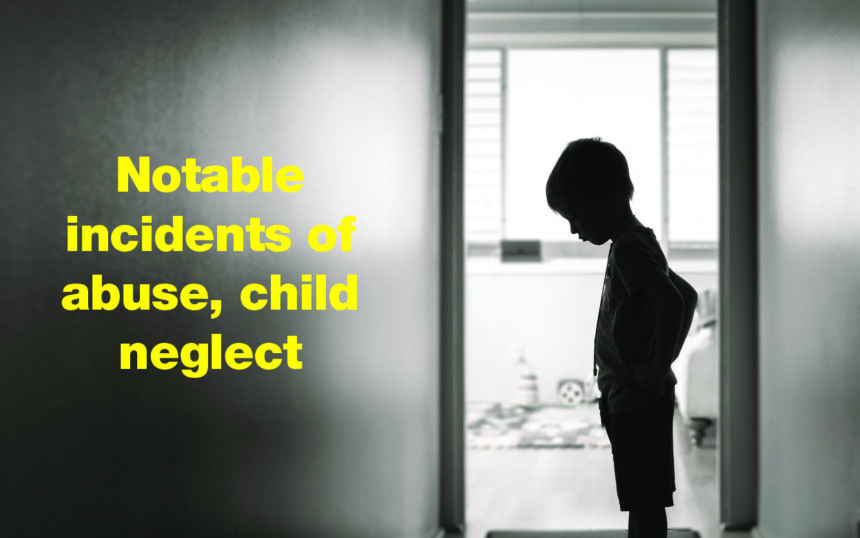Cases of child abuse and neglect in Namibia over the past two months have been on the rise, and experts are deeply concerned.
The police this past weekend reported at least 10 cases of child neglect, abuse or murder in Namibia.
One of these cases took place at Otavi, where a boy (2) was allegedly attacked by his father (28).
The man allegedly beat his son’s head with a concrete pole until he died.
In another incident this month the body of a girl (2) was found in a bucket half-full of oshikundu in the Omuthiya constituency.
In Namibia, 41% boys and 33% of girls experience physical, sexual, or emotional violence before they turn 18.
This was stated in a fact sheet produced by a United Nations Foundation called Together for Girls.
The fact sheet states that both girls and boys in Namibia experience high rates of physical, sexual and emotional violence.
This can occur at home, school or in the community.
PATRIARCHY, RACISM
Experts say the abuse is due to financial pressure, denial of paternity and a lack of support and parental involvement.
Clinical psychologist Shaun Whittaker says violence against children is extremely concerning.
“It’s a form of patriarchal violence that we now see being expressed against children,” he says.
He says patriarchy and racism cause cultural violence, involving a military style of raising children, where children are expected to be “strong”.
“Because of racism in the Namibian society black children are still less valued,” Whittaker says.
He says unemployment and homelessness also cause child abuse.
“So caregivers have tremendous stress and frustration, and therefore we definitely see an escalation of violence in Namibia.”
Whittaker says violence leads to complex trauma and substance abuse.
“I’m sure that sometimes when we have these horrific incidents, some of these caregivers might be under the influence, so we obviously need to do something,” he says.
‘BAN CORPORAL PUNISHMENT’
One solution, Whittaker believes, is to ban corporal punishment.
“So we really need the Namibian Supreme Court to rule on this and to affirm children’s right to dignity,” he says.
Social worker Veronica Theron yesterday said sometimes child abuse is a form of revenge against the other parent.
A lack of anger management and conflict resolution skills could also contribute to child abuse, she says.
“Children abandoned and left with relatives or elderly grandparents with no means to take care of them, and children having children with no proper parenting skills also contribute [to abuse and violence],” she says, adding that substance abuse could also lead to child neglect and abuse.
“The majority of abandoned babies are left unattended by parents with alcohol-related problems,” Theron says.
She says parents who have witnessed or experienced abuse themselves are more inclined to abuse or neglect their own children or those in their care.
“Violence is learned behaviour,” Theron says.
‘TEACHERS MAY NOT HARM’
In February, children’s advocate Heather Harker was alarmed by the statistics contained in the fact sheet.
“Schools are supposed to be a safe place for each and every child. One child harmed is one too many,” she said.
Harker said teachers may not harm children sexually or physically.
“Our law vigorously protects children from all forms of violence, be it from other children or teachers,” she said.
Teachers are in a position of trust and the abuse of that trust has severe consequences.
“Although most teachers in our country are exceptional at their task and take good care of children, we must continue to admonish unlawful behaviour and subject the perpetrators to the law,” Harker said.
Complaints can be lodged anonymously at the Office of the Ombudsman, where the children’s advocate is based.
“We will protect your identity,” she said.
EDUCATE CHILDREN ON RIGHTS
Harker advocates that children are educated on their rights.
“Where to go and who to talk to . . . The children’s advocate falls under the ombudsman and can be reached through any of the above means,” she said.
The head of social work at Regain Trust, Constance Muparadzi, agrees with Harker’s sentiments, saying the country is failing the young generation.
“Most of these children are being abused by people who are very close to them. The cases which have been reported are just a few, since the perpetrators are often close relatives,” she says.
Muparadzi says cases are often withdrawn where the perpetrators are close relatives or breadwinners.
“Children who are being abused can also become abusers. Their schoolwork can be affected as well,” she says.
She says family and community members should be held accountable and should not withdraw cases.
“Children should be taught how to engage their life skills teachers and open up about their situations at home.”
TALK ABOUT IT
The Namibian reported that about 20 000 children in Namibia between the ages of 12 and 17 have experienced online sexual exploitation and abuse in the last year.
According to the Disrupting Harm in Namibia report, which was launched by the Ministry of Gender Equality, Poverty Eradication and Social Welfare last year, 30% of children who have experienced abuse online have not disclosed their experiences to anyone.
They cited fear and not knowing where to report abuse as reasons for this.
“Blackmailing children to engage in sexual activities, sharing their sexual images without permission, or coercing them to engage in sexual activities through promises of money or gifts are examples of the exploitation children experience,” the report states.



Leave a Reply